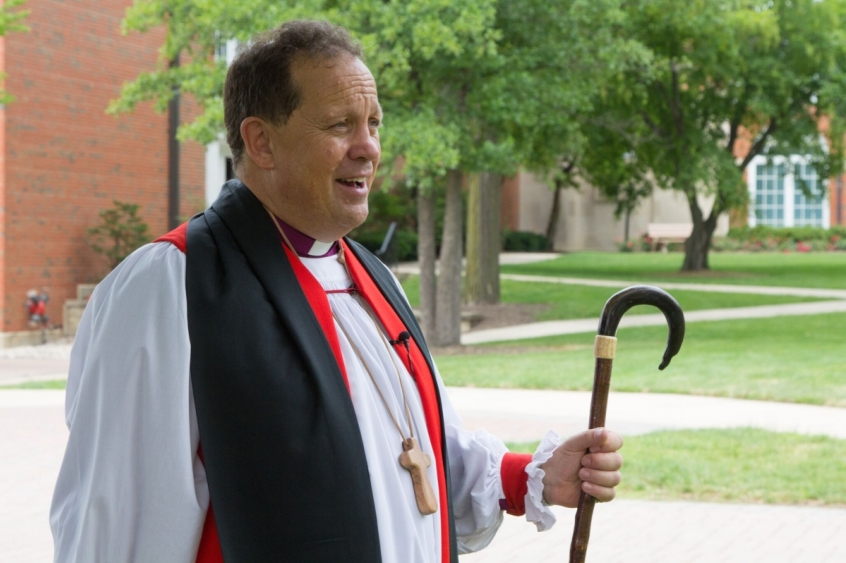On Thursday this week a potentially historic event will take place. Nine men will be ordained as Anglican ministers – but not in the Church of England.
Instead, as Christian Today has reported, they will be part of the new Anglican Mission in England (AMiE), a grouping formed in reaction to a perceived liberal drift in the C of E. AMiE is linked to the international conservative Anglican movement GAFCON – and even has its own 'missionary bishop', Andy Lines, who is also director of Crosslinks, a mission agency about a century old.

It would be easy in the black and white world of social media to default to one of two extremes: either regarding this latest move as shocking schism to be roundly condemned, or, alternatively, to see this latest grouping as the one true hope for all genuinely faithful and discerning Anglicans. But of course, as with most of life, it's more complex than that. So what does this development tell us in the light of the wider issues facing the worldwide Anglican Communion?
1. It's a wake-up call for Anglicans. Nine new church ministers is scarcely comparable with the thousands of already-ordained Church of England ministers in the established church. Nonetheless, it is a sad indictment of mainstream Anglicanism that these men either wouldn't – or couldn't – be ordained in the C of E. They are undoubtedly conservative on the issues of women's ministry and sexual morality – but no more so than many Anglicans, Baptists, Pentecostals, Roman Catholics and Eastern Orthodox Christians of course. Their views are well within the mainstream.
Most Anglican bishops may regard the AMiE ordinations as a sideshow – but they ought to be concerned if thoughtful, committed and gifted believers no longer feel (rightly or wrongly) that the Church of England has a place for them. And if they are secretly rather glad to be rid of people like this then they have some real soul-searching to do.
2. It's a wake-up call for evangelicals. It ought also to function as a wake-up call for Anglican evangelicals. Gone are the days when we were all singing from the same hymn sheet behind theologians like John Stott and JI Packer. Some might say that is a good thing – and that we are looking now more to Christ than to human leaders.
Nonetheless, there is a very real fragmentation of Anglican evangelicals of which the AMiE ordinations are but one symptom. Within the Church of England there are a plethora of groups and tribes claiming to represent various shades of evangelicalism – Reform, Fulcrum, Church Society, the Fellowship of Word and Spirit, New Wine, the Church of England Evangelical Council, Co-Mission and the HTB church-planting network. It's sometimes bewildering even for those us who want to be supportive. How can all these groups learn to understand each other and work together better?
And outside the Church of England, AMiE is not the only show in town – for other disaffected Anglican evangelicals are linking up with the Free Church of England, which currently has 20 churches and about 1,000 members, while a few others in the UK have aligned with the REACH-SA (the Reformed Evangelical Anglican Church of South Africa).
It has always seemed to me that the sort of Christian unity Jesus has in mind is rather more 'organic' – in terms of fellowship between believers of different backgrounds – than 'organisational' through everyone uniting in one bureaucratic mega-denomination. But even so, the splintering of evangelicals into all these different groups is a cause of concern. Moreover, the setting up of a evangelical Anglican structures outside the Church of England has the potential, some would say, of weakening the evangelical constituency in the C of E at a critical time.
3. It's a gospel opportunity. Whatever one makes of all this, one thing is clear: England – indeed the whole of the UK – desperately needs revival. Only the Holy Spirit can ultimately bring that. But we can pray for it. And we can work for it. And part of that work has to be the planting of new churches, as well as the nurturing of existing congregations.
If AMiE can come anywhere close to its goal of planting 25 churches by 2025 and 250 by 2050, well, what's not to like about that? There are plenty of unchurched people yet to be reached, even in areas with existing healthy congregations. We can say with St Paul: 'The important thing is that in every way...Christ is preached. And because of this I rejoice.'
Whatever our precise thoughts about these ordinations, we perhaps do well to heed the wise words of the teacher Gamaliel about the first Christians recorded in Acts 5: 38-39: 'If their purpose or activity is of human origin, it will fail. But if it is from God, you will not be able to stop these men; you will only find yourselves fighting against God.' So whatever our thoughts about AMiE's strengths and weaknesses, let us above all else pray for God's blessing upon them.
David Baker is a former daily newspaper journalist now working as an Anglican minister in Sussex, England. Find him on Twitter @Baker_David_A













